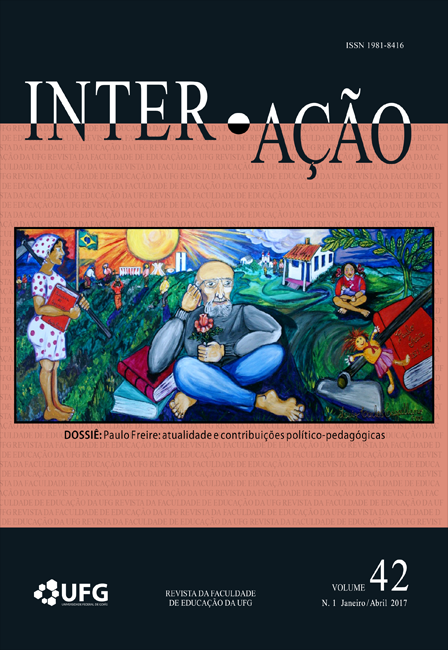A EDUCAÇÃO PROBLEMATIZADORA DE PAULO FREIRE, UMA PEDAGOGIA DO SUJEITO SOCIAL
DOI :
https://doi.org/10.5216/ia.v42i1.43774Mots-clés :
Paulo Freire, Educação Problematizadora, Educação Popular, Sujeito SocialRésumé
O artigo apresenta os resultados de uma investigação bibliográfica sobre o pensamento de Paulo Freire, considerando a tese de que o mesmo tem o sujeito social como horizonte formativo. Visa identificar e evidenciar, a partir dos escritos freireanos, um conceito de sujeito social afinado com os princípios políticos e pedagógicos da educação popular. A análise bibliográfica abarcou a totalidade dos livros de Freire, dedicando maior atenção às obras: Pedagogia do Oprimido, Conscientização, Pedagogia: Diálogo e Conflito, Política e Educação, Pedagogia da Esperança e Pedagogia da Indignação. Aprofundando o estudo de categorias centrais como conscientização e diálogo, foi possível identificar e caracterizar um conceito de sujeito social na pedagogia freireana, configurando um horizonte formativo em consonância com os fundamentos e ideais da educação popular.
Téléchargements
Téléchargements
Publié-e
Versions
- 2026-02-03 (2)
- 2017-06-09 (1)
Comment citer
Numéro
Rubrique
Licence
© Revista Inter Ação 2017

Cette œuvre est sous licence Creative Commons Attribution - Pas d'Utilisation Commerciale 4.0 International.
A Inter-Ação utiliza como base para transferência de direitos a licença Creative Commons Attribution 4.0 para periódicos de acesso aberto (Open Archives Iniciative - OAI). Por acesso aberto entende-se a disponibilização gratuita na Internet, para que os usuários possam ler, baixar, copiar, distribuir, imprimir, pesquisar ou referenciar o texto integral dos documentos, processá-los para indexação, utilizá-los como dados de entrada de programas para softwares, ou usá-los para qualquer outro propósito legal, sem barreira financeira, legal ou técnica.
Autores que publicam neste periódico concordam com os seguintes termos:
1) Autores mantém os direitos autorais e concedem à revista o direito de primeira publicação, com o trabalho simultaneamente licenciado sob a Licença Creative Commons Attribution que permite o compartilhamento do trabalho com reconhecimento da autoria e publicação inicial nesta revista.
2) Autores têm autorização para assumir contratos adicionais separadamente, para distribuição não-exclusiva da versão do trabalho publicada nesta revista (ex.: publicar em repositório institucional ou como capítulo de livro), com reconhecimento de autoria e publicação inicial nesta revista.
3) Autores têm permissão e são estimulados a publicar e distribuir seu trabalho online (ex.: em repositórios institucionais ou na sua página pessoal) a qualquer ponto antes ou durante o processo editorial, já que isso pode gerar alterações produtivas, bem como aumentar o impacto e a citação do trabalho publicado.















